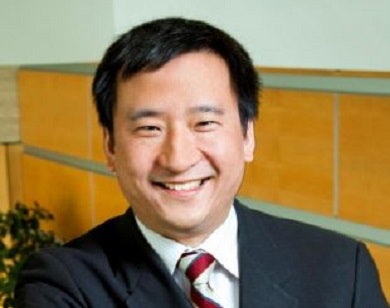All anybody can talk about, even think about, is coronavirus, COVID 19, the novel disease that has overwhelmed the world and brought human interaction to a hard stop. Calling it “the Chinese virus” only worsens the situation. Regardless of whether it is deemed “racist,” the persistent use of the term even after protests, is problematic. It only harms our efforts to control the spread of illness by adding animosity to the air.
The exact intention is irrelevant. In our daily communications, any language can be positive or negative depending on the context. “Oh, I love you,” exclaimed to a stranger who does you a favor unexpectedly is not the same in meaning as the utterance to one’s spouse even if the sentence is the same.
In laboratories, scientists performing research in fact have labeled pandemics by the origin and the year. “The Spanish flu” of a century ago probably was a misnomer. People still defend “Jap” as an abbreviation, and it undoubtedly was introduced as such in newspaper headlines. Yet it would be difficult to deny it took on derogatory connotations.
Only within our lifetimes has the cultural understanding of medical conditions become more accepting. For much of human history, the assumption, sometimes explicit, other times merely implicit, was that individuals became sick because they deserved to be punished by fate or by God. Cancer was associated with moral stigma. A community that was stricken was all the more wicked, as when AIDS was a mystery identified with “homosexuals” and Haitians.
 Frank Wu
Frank WuAsians, especially Chinese, have faced a history in America of being described as dirty, the source of contagion. In San Francisco before the 1906 earthquake, for example, the bubonic plague outbreak was attributed to Chinese immigrants. The characterization of Chinese as filthy, living in a squalid Chinatown, as if they had chosen hyper segregation, was used in turn to justify continuing exclusion and further discrimination.
No matter how assimilated, even those who are as American as can be, continue to be affected by these prejudices. The common perception of Chinese restaurants is that they are not as clean as other establishments. Stories about how coronavirus started — Chinese eating habits — are all about who to blame rather than how to help. They distort and exaggerate, playing off the same themes as the most obvious bigotry.
Everyone also has become acutely aware that in addition to the disease itself, there are issues of social panic, whether hoarding behavior, failure to follow precautionary protocols, or even a run on handguns in anticipation of much worse to come. Scapegoating Asians, almost all of whom came to this nation or whose ancestors arrived for the same reasons as any other group, and who themselves are as vulnerable if not more so, increases the risk of disorder. The attacks on Asian Americans are about more than catching a bug; they are about assigning guilt for eschatological scourge.
But it has another effect that should concern public officials, even if they care not a bit about civil rights. The campaign to contain, even cure, the affliction requires collaboration among experts, and this distraction decreases the possibility of cooperation.
Ironically, the shared hope for better testing, effective treatment, and possibly a vaccination also relies greatly on professors of Chinese descent. Among those who are heading projects is David Ho, a Columbia professor renowned for his anti-HIV “cocktail.” So many campuses have welcomed Chinese exchange students, some of whom have stayed, becoming naturalized citizens, raising the next generation on these shores, as equal Americans. Without them, the science, technology, engineering, and mathematics (STEM) departments of many campuses would lack both teachers and students.
Some of them, however, have been driven out by recent policies that portray them as spies and thieves. There already are reports of Chinese immigrants, compelled to “go back to where they came from,” as their enemies have wished, who have contributed not to American progress but instead Chinese progress, specifically on corona virus. Against a threat to the human population in general, even to draw a line between American progress and Chinese progress seems misguided, verging on dangerous.
As we shelter in place, each of us among our families, our sympathy for others, including those who are not as privileged, is what must endure. Otherwise, if we divide among ourselves, it is not the disease we will be fighting.
Frank H. Wu is the William L. Prosser Distinguished Professor at the University of California Hastings College of the Law. You can follow him on Twitter @Frankhwu


















